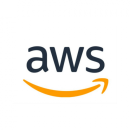When implemented correctly, DevOps can have an immensely positive impact on companies’ development teams, and the way they bring products into fruition. And everyone from Walmart to Netflix has gotten in on this buzzy tech practice.
A portmanteau of development and operations, DevOps is meant to streamline and automate the workflow between software engineers and IT teams, un-siloing the traditionally separate departments and addressing any inefficiencies and lapses in communication between them. It combines several different tools and practices like continuous delivery and automation to more efficiently develop and deliver new software, apps and services.
DevOps Companies to Know
- Amazon Web Services
- Bitrise
- Copado
- GitLab
- HashiCorp
- Microsoft
- Outsystems
- Semaphore
- StackHawk
Since it first came to prominence in the late 2000s, DevOps has been shown to shave months off the development cycle for all kinds of enterprise companies, among other benefits. And, of course, the companies that make this more collaborative environment possible are largely responsible for its success.
DevOps Companies to Know
With GitLab, companies can create, deliver and manage all of their code efficiently and continuously, as opposed to managing disparate tools and scripts. They can also track project data, allowing for a more collaborative environment. And, for further peace of mind, the platform provides features for organizing and protecting any applications and infrastructure a company has, ensuring the entire DevOps process is secure.
HashiCorp is the company behind the multi-cloud provisioning and automation software Terraform. It is an infrastructure-as-code tool, meaning it manages IT infrastructure through code and automation instead of manual configuration. When it comes to DevOps, this is important because it establishes a workflow that fosters collaboration between IT operations and developers. It also minimizes redundant work, thus speeding up the entire development and deployment process.
Honeycomb is a software debugging platform that offers developers a way to visualize, analyze and improve their company’s cloud application performance. The tool uses a query engine, analysis tools and integrated distributed tracing to help users quickly compare billions of rows of data, and identify any patterns or anomalies — allowing for faster releases and incident responses.
CloudBees offers an end-to-end, automated, software delivery system, allowing companies to accelerate their software development and streamline their self-management process. In addition to software delivery management, the platform offers everything from continuous delivery to release orchestration, and allows users to store their data either on premise or in the cloud. CloudBees works with companies across a variety of industries, including Internet of Things, finance and even government.
Copado is a DevOps platform focused specifically for Salesforce deployments. It integrates AI-enabled test automation into every line of code deployed, automating repetitive tasks and allowing for more frequent deployments. The platform is designed to foster a more collaborative environment across teams, manage continuous integration and continuous delivery pipelines, and much more. Its suite of cloud and no-code solutions are meant to help businesses get more out of these tools efficiently and securely.
With the goal of making DevOps accessible to everyone, DuploCloud’s no-code and low-code platform helps companies quickly build an automated and secure cloud infrastructure. DuploCloud claims it can auto-generate 90 percent of manual code, incorporating best practices for security, availability and compliance standards for cloud integrations. This is accomplished by taking high-level specifications provided by a given user and translating those specifications into low-level details for fully managed cloud configurations, generating all the necessary infrastructure for a given application.
As a tech company, Juniper Networks has a wide range of products and solutions, but its Cloud-Native Contrail Networking, or CN2, platform is meant specifically for DevOps. It automates the creation and management of virtual networks, allowing teams to connect, isolate and secure workloads in both private and public clouds. CN2 is designed to handle multicluster environments that are shared by many teams, applications and engineering phases.
Perhaps best known for its personal computers and cloud computing capabilities, Microsoft has also made a name for itself in the DevOps space. Its Azure DevOps tool covers the entire lifecycle of the process, providing everything from version control to project management to automated building and testing capabilities. The company also owns GitHub, which provides open-source tools for DevOps.
EPAM offers software engineering and other tech expertise to a wide range of critical industries, from healthcare to fintech. In providing DevOps services, the company works alongside clients as a partner to modernize and optimize all facets of their engineering and operations arms. Its areas of focus are strategy, growth optimization, agile transformation, cloud-based work systems and quality of engineering.
Amazon Web Services, or AWS, is, without a doubt, one of the biggest names in the world of DevOps. The cloud computing platform allows engineers to scale their capacity incrementally, thus allowing any developer to deploy their own code whenever they want and on whatever servers they need. The company also recently unveiled a new DevOps Guru service, which uses machine learning to analyze data from cloud services, identify any patterns and anomalies to detect potential issues early, and enable IT departments to analyze and act on those issues. The machine learning algorithms that feed DevOps Guru have been trained with Amazon’s plethora of data.
AutoRABIT offers a suite of tools specifically for Salesforce developers. Its Automated Release Management solution provides automatic continuous integration and continuous delivery capabilities, sandbox management, test automation and more. Its Vault Data Backup and Recovery solution gives companies the ability to securely back up and instantly recover all their data, metadata, file attachments and content, ensuring they meet compliance, audit and security requirements. Meanwhile, its CodeScan tool provides visibility into code health from when it is first written all the way to its final deployment. And its Record Migrator helps ensure fast and efficient product releases.
Mobile app developers rely on Bitrise to automate the building, testing and deployment of their applications, with a heightened focus on speed and user experience. According to Bitrise, mobile DevOps is trickier than just plain old DevOps in that it requires more frequent updates, more agility and faster, more iterative releases. It is best accomplished with a regular, rolling deployment system, which is exactly what Bitrise provides. Popular apps including Grindr, Reddit and Babbel have used the tool.
Cast AI calls itself an “all-in-one platform” for Kubernetes automation, optimization, security and cost management. It essentially automates the DevOps process, giving engineers more time to handle higher-level challenges while taking care of more repetitive tasks relating to things like networks, storage and security. Cast AI is cloud-native, and supports AWS, Google Cloud and Microsoft Azure.
Flosum is yet another DevOps tool built especially for Salesforce development, helping companies manage, plan, schedule and control all their deployments through different stages in the Salesforce environment. The platform is capable of securing a company’s entire Salesforce environment against external threats and data exposure, automating and orchestrating deployments, managing company data, and ensuring everything remains compliant with all the necessary privacy laws and policies.
Jenkins is an open-source automation server, providing hundreds of plug-ins to help developers build, test and deploy their software. Plus, with a community of hundreds of thousands of users and millions of implementations all over the world, developers can look to Jenkins as an educational resource and a place to ask questions.
OutSystems is a low-code tool that helps businesses of all sizes develop, deploy and manage their applications, combining its visual, model-driven development capabilities with AI, cloud DevOps and security. Users can create everything from mobile and web applications to chatbots and virtual assistants through the platform’s drag-and-drop development environment, which can be further personalized with custom code.
Opsera provides continuous orchestration and insights across a company’s DevOps lifecycle, helping them deliver software faster, safer and more efficiently. The platform allows users to build their own custom tool chain from a catalog of tools, or from ones they bring themselves, and operate a drag-and-drop workflow that promotes more seamless cooperation between departments. It also supports domain-based pipelines, like software development lifecycle pipelines for developers, artificial intelligence and machine learning pipelines for data scientists, and more.
Prodly DevOps helps companies track, manage and deliver work in a more efficient way thanks to its integrated work management, automated release management, source control and sandbox seeding capabilities — all of which have been specifically designed for Salesforce development. The company counts corporate giants like American Express, Expedia and Johnson & Johnson among its customers.
With the goal of making CI/CD practices more accessible to developers, Semaphore allows engineering teams to configure their pipelines exactly how they want them to run, from simple sequential builds to multi-stage parallel pipelines. And its services are available in the cloud, on premise or as a hybrid solution via self-hosted agents. Plus, Semaphore offers custom CI/CD training for developers.
With a focus on pre-production web application security testing, StackHawk is meant to function alongside engineers in each stage of the development cycle, working to address any security vulnerabilities as they come up as opposed to months later. The idea is that, by automatically fixing vulnerabilities while still in context of the code, bugs won’t seep into a product once it’s hit the production or deployment stage.
Sonar makes tools developers use to produce clean code and improve the quality of their software products. Its offerings support DevOps teams by equipping them with productivity solutions that prevent and detect code errors so they can achieve a faster time to market and avoid rollbacks.
RapDev helps clients integrate IT and development operations. It works with SRE, DevOps and cloud platforms to innovate tech and make internal projects or codebases publicly available through its GitHub code repository.























